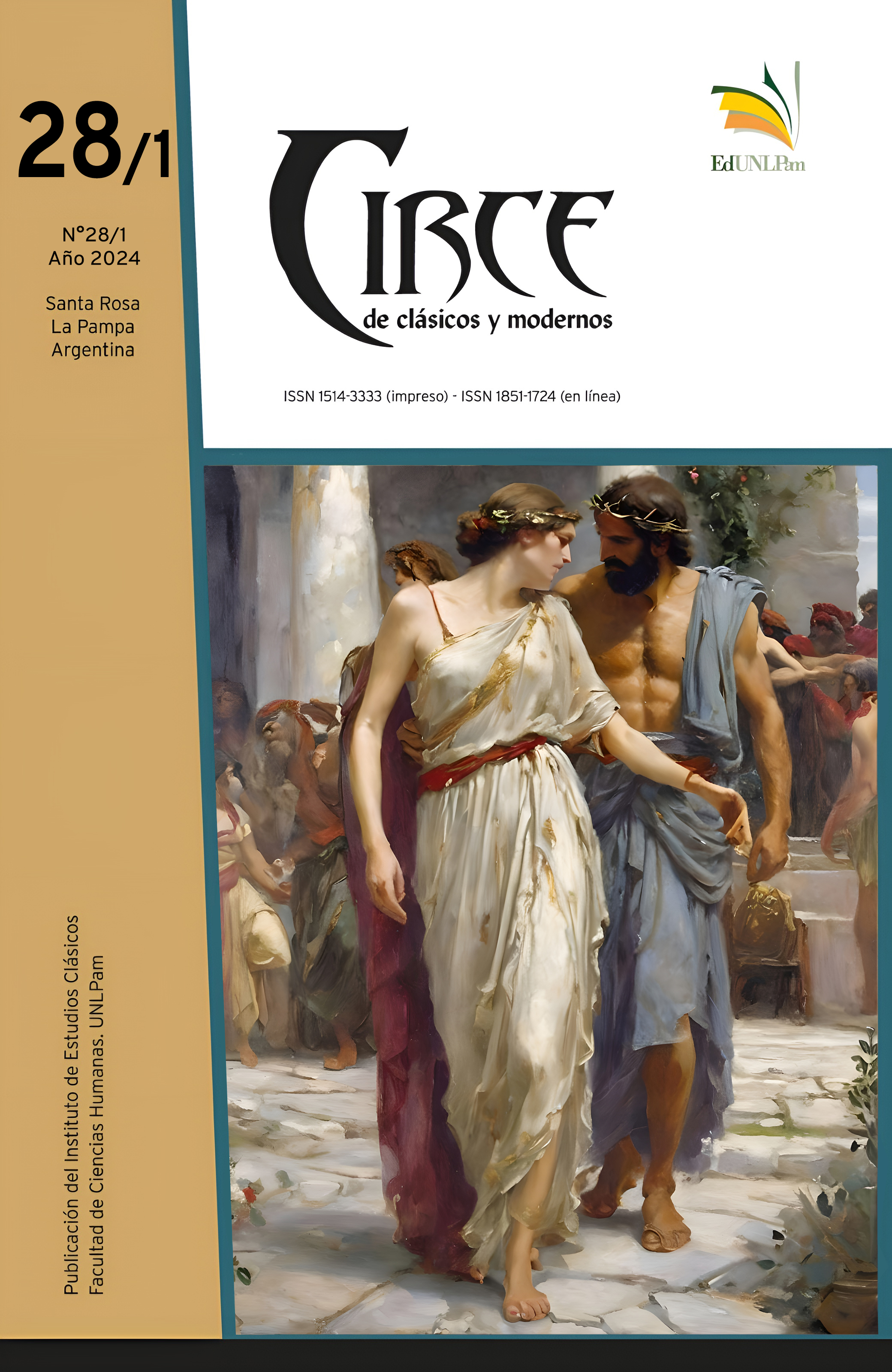De civitate Dei 8. 3: a Socrates tailored to Saint Augustine
Keywords:
doxography, theology, Socrates, Philosophical schools, Roman AfricaAbstract
The notion of natural theology is a key one in the work of Augustine who, as a Roman formed from the coordinates of the classical canon, builds within his work the necessary devices to give legitimate, although partial, entry to Greco-Roman elements that will be guide his own argument in the territory of Christian literature. The eighth book of his treatise The City of God allows us to observe the extraction of that notion from its area of origin, especially the texts of Varro and Cicero, which in turn have their antecedents in the academic and Stoic philosophical tradition, their adaptation to the horizon of biblical-Christian meaning and its interested use within it. The operation carried out by Augustine gives us a glimpse of his knowledge and ability to manipulate the Roman-Republican literary tradition, in addition to certain conceptions from the doxographic vulgate in force in his context, such as those of “schools” and philosophical “successions.” We are interested in focusing, above all, on the games of amalgamations and semantic shifts that Augustine rehearses on the profile of Socrates, with very specific purposes, and which lead us to observe, also, the circulation of ideas in the North African Roman area, for which we have some interesting antecedents, such as the Latin apologetics books of Tertullian and Minutius Felix, between the 2nd and 3rd centuries.
Downloads
Downloads
Published
Issue
Section
License
Los autores que tengan publicaciones con esta revista, aceptan los términos siguientes referidos a los derechos de autor/a:
1. Los autores/as conservarán sus derechos de autor y garantizarán a la revista el derecho de primera publicación de su obra, el cuál estará simultáneamente sujeto a la Licencia de reconocimiento de Licencia Creative Commons Atribución-NoComercial-CompartirIgual 4.0 Internacional (http://creativecommons.org/licenses/by-nc-sa/4.0/). que permite a terceros compartir la obra siempre que se indique su autor y su primera publicación esta revista. El autor es el titular del copyright.
2. Los autores/as podrán adoptar otros acuerdos de licencia no exclusiva de distribución de la versión de la obra publicada (postprint) siempre que se indique la publicación inicial en esta revista. La cesión de derechos no exclusivos implica también la autorización por parte de los autores para que el trabajo sea depositado en el repositorio institucional y difundido a través de las bases de datos que el editor considere adecuadas para su indización, con miras a incrementar la visibilidad de la publicación y de sus autores.
3. Se permite y recomienda a los autores/as difundir su obra a través de Internet antes y durante el proceso de envío, lo cual puede producir intercambios interesantes y aumentar las citas de la obra publicada.







.jpg)









2.png)



